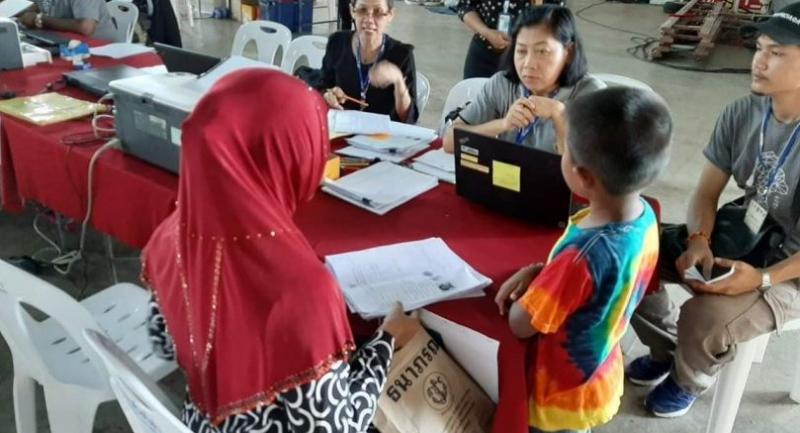Stateless Thais mired in red tape

BUREAUCRATIC complexity and inaction and corruption on the part of local administrative officials have been blamed for blocking ethnic Thais from Myanmar from gaining citizenship.
Hundreds of stateless people from Myanmar gathered at the Ranong Provincial Administrative Organisation last Tuesday for a special session of nationality registrations.
They hoped to be recognised as Thai nationals and thus gain access to legal rights as citizens. Many had waited decades, so slow is the processing.
They applicants hailed from Koh Song and Myeik in Myanmar, which were Siamese provinces until the 18th-century Burmese military campaign that toppled the Kingdom of Ayutthaya.
Most of the applicants have relatives in Thailand.
As part of an Interior Ministry thrust to resolve the longstanding problem of statelessness, Ranong administrators, Rangsit University and the Thai Community Foundation organised the three-day mobile registration.
Foundation coordinator Pakin Saengdong pointed out, though, that less than half of the 200 applicants there on the first day last Tuesday managed to complete the registration process.
“Many stateless people face lots of obstacles when it comes to registering their nationality and becoming a citizen in their own motherland,” Pakin said.
“The main reasons are the complexity and corruption in the procedure. We’ve seen many problems even at this special registration session.”
Pakin cited a rule that applicants must register in family groups, beginning with the parents. Once the parents establish their nationality, their children automatically become citizens.
But he pointed out that the parents usually have no birth documentation or are unable to prove a biological connection to Thailand.
So their verification procedure takes longer and they have less chance of being recognised as ethnically Thai, which in turn reduces their children’s chance of securing citizenship.
One workaround offered by corrupt officials in the past was to pay anywhere from Bt30,000 to Bt50,000 as an “administration fee”. The service is in fact officially free.
When the Interior Ministry’s Provincial Administration Department learned of this practice, rather than reimbursing those who paid a dishonest fee, it invalidated all applications suspected of being tainted and banned the migrants from ever reapplying.
Arthit Boonyasophat, director-general of Provincial Administration at the ministry, said the spill-on problems had been acknowledged and efforts were underway to correct them so that everyone who qualifies can obtain citizenship.
Asked if the procedure was too complicated, Arthit said every applicant without exception must follow the official procedure in line with the law.
“We work in an official agency, so we must follow the law. Any exceptions must be initiated by the policymakers,” he said.
Arthit said the long delays in verification were due to an overwhelming workload, but his department planned to add more manpower in the most burdened districts.
